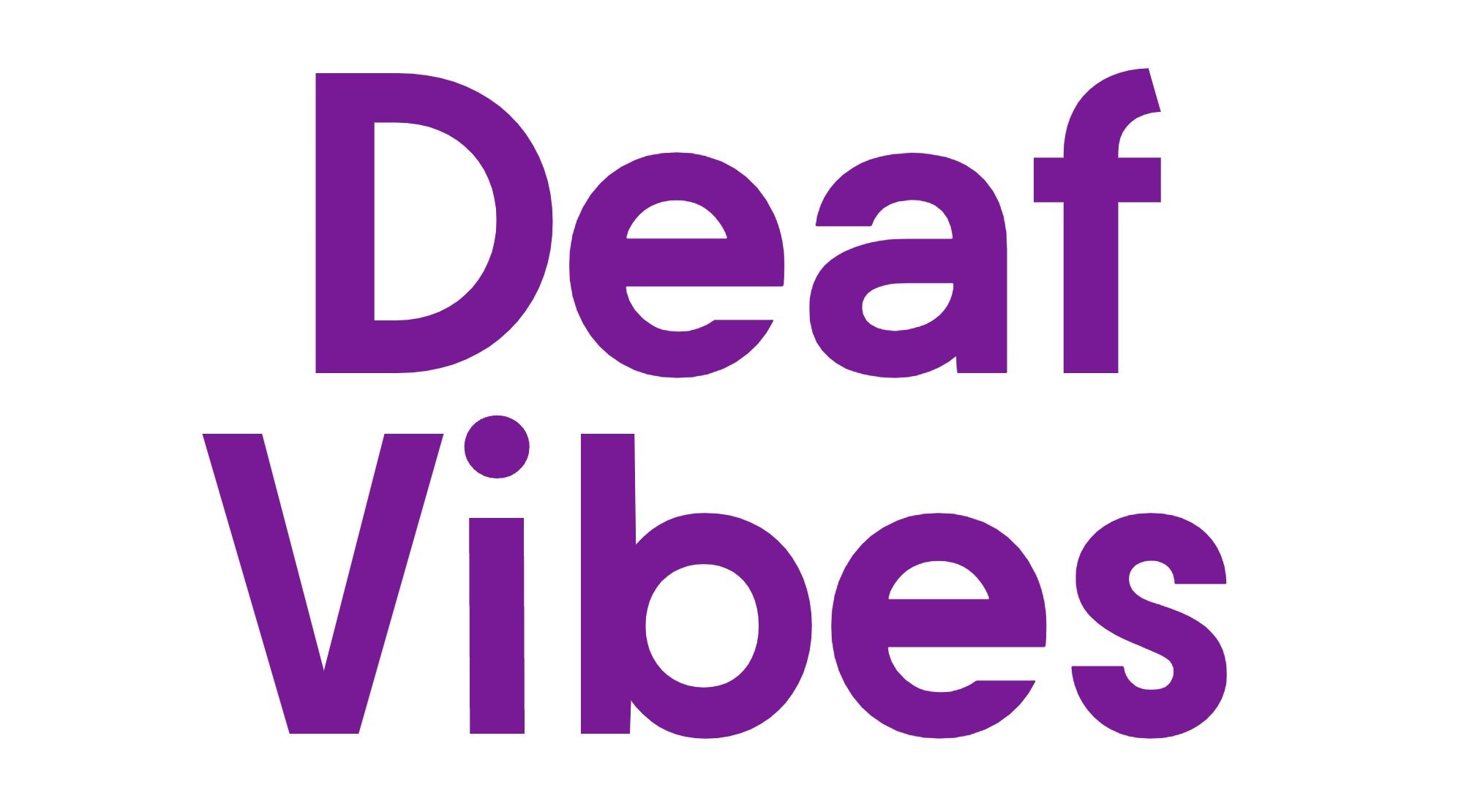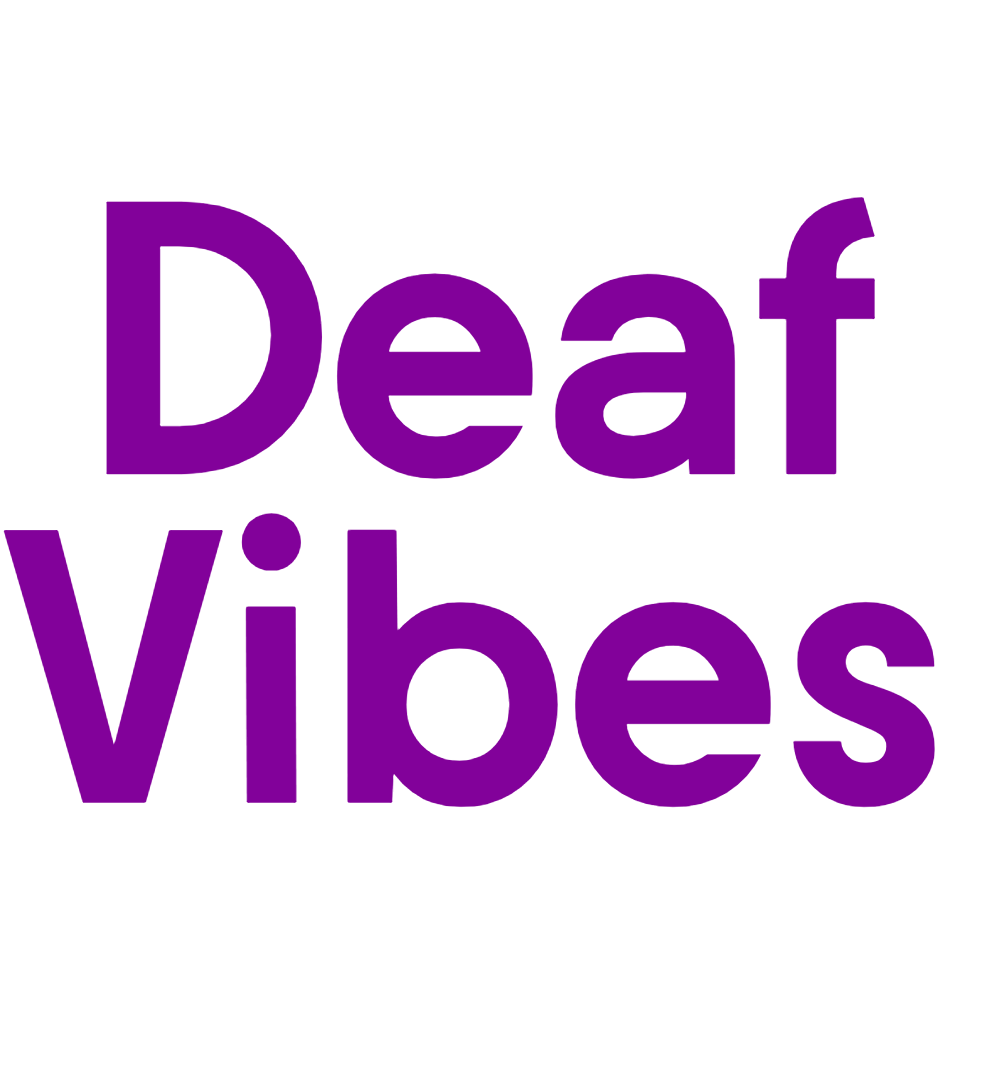Therapies and Interventions
Top 10 Speech Therapy Apps for Effective Communication
Embark on a journey to discover the top 10 speech therapy apps for effective communication, revolutionizing the way we enhance our speech skills.

In investigating the world of speech therapy applications, it’s intriguing to observe that more than 70% of speech therapists incorporate technology into their treatment sessions.
These innovative tools offer a myriad of benefits for individuals striving to enhance their communication skills.
Whether you're a professional in the field or someone looking to improve your own speech abilities, the top 10 speech therapy apps we're about to discuss could be just the resource you need to achieve effective communication.
Key Takeaways
- Speech therapy apps target articulation, language, fluency, and voice skills effectively.
- Interactive exercises and visual feedback enhance communication abilities in a fun and engaging manner.
- These apps cater to a wide range of speech goals, including expressive language and social skills.
- Features like self-assessment and customizable settings aid in personalized therapy sessions for improved outcomes.
Articulation Apps
Articulation apps play a crucial role in speech therapy by offering interactive exercises and tools designed to enhance speech sound proficiency. These apps, such as Articulation Station by Little Bee Speech and ArtikPix by Expressive Solutions, are specifically tailored to help children improve their articulation skills through engaging activities like flashcards and matching games. By focusing on practicing speech sounds, these apps provide a fun and effective way for children to work on their communication abilities.
Speech FlipBook Standard by Tactus Therapy Solutions Limited is another notable app that targets articulation therapy by offering visual feedback and data collection tools. This app allows users to track progress and customize sessions, making it easier for speech therapists to monitor and adjust treatment plans accordingly.
Language Development Tools

Language development tools are essential resources in speech therapy for enhancing expressive language and social skills. These tools offer interactive features that facilitate effective communication therapy. Here are some top language development tools:
- Language Therapy 4 in 1 by Tactus Therapy Solutions Limited: This comprehensive app targets expressive language, social skills, and language comprehension, making it a versatile tool for therapy sessions.
- Lets be Social by Everyday Speech LLC: Focusing on enhancing social skills, this app provides engaging activities and interactive lessons to improve social interaction abilities.
- Conversation Therapy by Tactus Therapy Solutions Limited: This tool offers support for speech goals, grammar targets, and language skills, aiding in the development of effective communication strategies.
These language development tools emphasize expressive language and social skills, making them valuable assets in speech therapy sessions. With their interactive features and targeted approaches, they play a crucial role in enhancing communication abilities and promoting language development.
Fluency Improvement Apps
When it comes to enhancing fluency, utilizing apps like Articulation Practice Tools and Stuttering Therapy Exercises can be beneficial. These tools offer interactive exercises and activities to address stuttering and fluency goals effectively.
Incorporating such apps into therapy sessions can aid in improving speech fluency and overall communication skills.
Articulation Practice Tools
Effective communication can be enhanced through the use of specialized apps that offer targeted articulation practice tools for improving fluency. These apps focus on producing fricative sounds, implementing visual effects for feedback, and engaging users in interactive exercises.
Here are three top articulation practice tools for fluency improvement:
- Articulation Station by Little Bee Speech: Offers a variety of tools for targeted articulation practice and improvement.
- ArtikPix by Expressive Solutions: Focuses on flashcards and matching activities to enhance fluency.
- Speech FlipBook Standard by Tactus Therapy Solutions Limited: Provides visual feedback and data collection features for effective articulation practice.
These apps are designed to boost speech clarity and fluency through customizable sessions and progress tracking.
Stuttering Therapy Exercises
Stuttering Therapy Apps provide exercises and techniques designed to enhance fluency in speech through visual and auditory feedback support. These apps offer tools for managing stuttering by incorporating breathing exercises, slow speech techniques, and desensitization strategies. Users can benefit from features such as progress tracking and goal setting to personalize their therapy journey.
Vocabulary Building Apps

Vocabulary building apps, such as 'Worlds Worst Pet | Vocabulary', offer interactive activities designed to enhance language skills through engaging exercises and tasks. These apps are valuable tools in speech therapy for improving communication skills by expanding vocabulary and fostering language development. Here are three key features of vocabulary building apps:
- Interactive Exercises: Vocabulary apps provide a range of interactive exercises that help users engage with new words and concepts in a fun and stimulating way.
- Language Comprehension: Users can access diverse stimuli and language targets within these apps, which aids in improving both comprehension and expression skills.
- Customized Learning: The customizable settings in vocabulary apps allow for personalized learning experiences tailored to individual needs and goals, making them effective for users at various skill levels and age groups.
Social Skills Enhancement
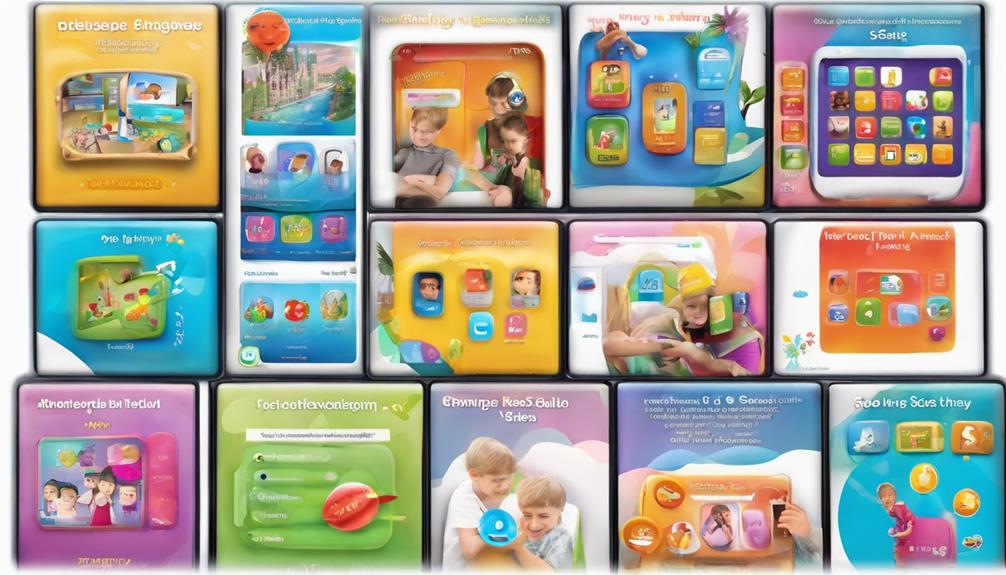
Social Skills Enhancement apps offer valuable opportunities for users to enhance their interaction abilities. They incorporate features like role-playing exercises, emotion recognition tasks, and conversational turn-taking practice.
These tools are designed to improve communication effectiveness and foster better social relationships.
Role-Playing for Interactions
Engaging in role-playing activities during speech therapy sessions allows individuals to actively practice and refine their social skills in a controlled setting. Role-playing activities in speech therapy offer various benefits:
- Realistic Scenarios: Individuals can act out real-life situations to learn and apply appropriate communication strategies.
- Boosts Confidence: Promotes active participation, boosting confidence levels in social interactions.
- Enhances Social Communication: Provides a structured approach to address specific communication challenges and work on targeted social goals.
These activities can be tailored to suit various age groups and communication needs, making role-playing a versatile tool in speech therapy for enhancing social skills effectively.
Emotion Recognition Practice
Exploring emotion recognition practice within speech therapy apps offers a valuable opportunity to enhance social skills through improved understanding of facial expressions and emotions. These interactive activities help users identify and interpret various emotions accurately, fostering the recognition of non-verbal cues and the development of empathy.
By engaging in exercises and challenges, individuals can build emotional intelligence and communication skills essential for effective social interactions. Emotion recognition activities in speech therapy apps aim to support users in navigating social situations and expressing emotions appropriately.
Through these practices, individuals can enhance their social skills, leading to more successful and fulfilling communication experiences.
Conversational Turn-Taking Skills
Developing conversational turn-taking skills is a fundamental component of effective communication, facilitating balanced and reciprocal interactions. These skills are essential for maintaining smooth conversations and building strong social connections. Here are some key points to consider:
- Actively listening to others is crucial for successful turn-taking.
- Waiting for a turn to speak shows respect and enhances communication flow.
- Responding appropriately helps in keeping the conversation engaging and meaningful.
Speech therapy apps focusing on conversational turn-taking provide interactive practice sessions to improve communication skills in real-life scenarios. By honing these skills, individuals can boost their confidence, enjoy better social interactions, and achieve improved communication outcomes across various settings.
Voice Therapy Apps

Voice therapy apps offer a range of interactive tools and exercises designed to support individuals in improving their vocal pitch, intensity, fluency, and articulation skills.
The Voice Analyst app analyzes voice pitch and intensity, aiding in achieving voice therapy goals. For those targeting stuttering and fluency goals, the Fluency SLP app provides interactive exercises.
Visual feedback for articulation and fluency practice is a feature of the Speech Tutor app. Assessing articulation skills is made easier with the tools offered by the Articulation Test Center app.
Additionally, the Speech FlipBook app serves as an interactive tool for speech sound practice and articulation therapy. These voice therapy apps cater to a variety of needs, offering innovative solutions to enhance voice pitch, fluency, and articulation skills, ultimately contributing to more effective communication.
Communication Games
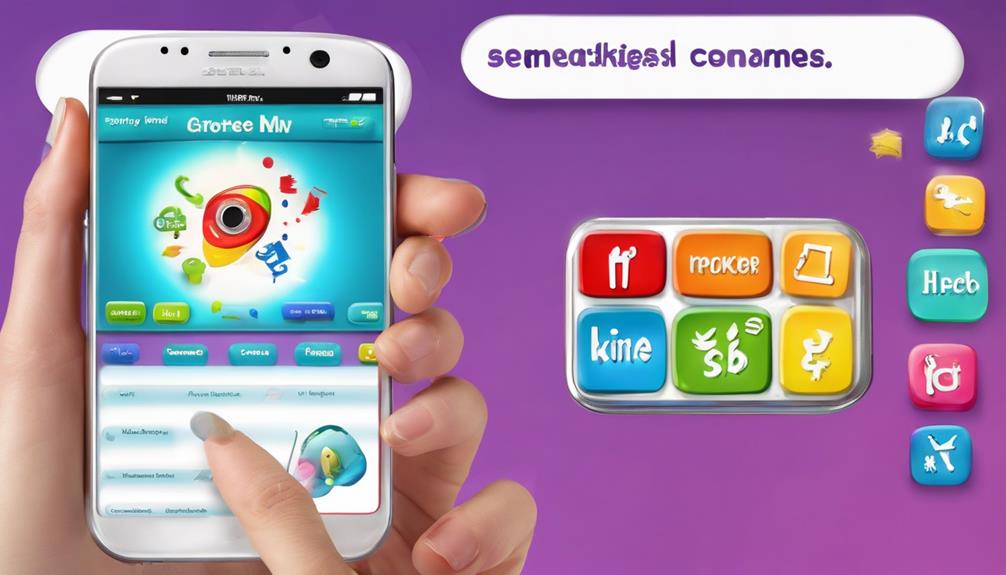
Communication games within speech therapy apps offer interactive and engaging activities that target language and social communication skills. These apps provide a fun and structured way for individuals to practice conversation, vocabulary, and expressive language. These games are designed to be versatile tools for therapists and individuals and allow customization to address specific speech and language goals. By incorporating elements of play and challenge, these games keep users motivated and focused on improving their communication abilities.
Pronunciation Practice Apps
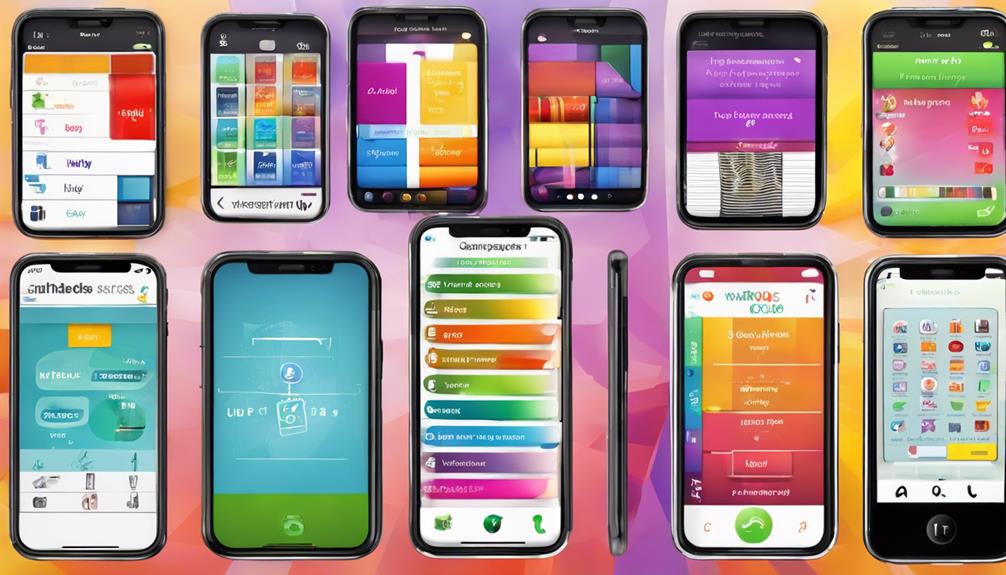
Pronunciation Practice Apps offer interactive exercises and games that assist users in enhancing speech clarity and accuracy by targeting specific speech sounds and providing feedback on articulation skills. These apps focus on improving the correct production of speech sounds through engaging activities that help users practice and refine their pronunciation.
By honing in on specific speech sounds, users can work on articulation precision and overall phonological development. Features like audio recording for self-assessment and progress tracking may be included in these apps to enhance the learning experience.
Pronunciation Practice Apps are designed to be effective tools in speech therapy, enabling individuals to work on their articulation skills in a structured and engaging manner. Incorporating these apps into a speech therapy regimen can help individuals make significant strides in improving their speech clarity and accuracy.
Listening and Speaking Apps

Listening and Speaking Apps serve as valuable tools for honing pronunciation skills and enhancing conversational abilities.
These apps provide diverse activities that target auditory processing, receptive language, and expressive communication, catering to a wide range of users seeking to improve their listening and speaking proficiency.
Pronunciation Improvement Tools
Utilizing interactive sessions with features like flashcards and spinners, pronunciation improvement tools such as Articulation Station offer engaging ways to enhance speech clarity and articulation skills. Erik X. Raj Articulation Apps target later-developing sounds through play-based activities.
SCIP (Sound Contrasts in Phonology) provides approaches for treating phonological patterns effectively. Speech Blubs uses video modeling to enhance speech and articulation skills in users.
ArtikPix offers articulation practice through flashcards and matching games for comprehensive learning.
- Erik X. Raj Articulation Apps focus on later-developing sounds.
- SCIP provides effective treatment approaches for phonological patterns.
- Speech Blubs utilizes video modeling to enhance speech and articulation skills.
Conversation Practice Platforms
Enhancing communication skills through conversation practice platforms is crucial for improving listening and speaking abilities effectively. Speech Therapy Apps like Conversation Therapy by Tactus Therapy Solutions Limited and Lets be Social by Everyday Speech LLC offer interactive activities specifically designed to enhance conversation skills and social interactions.
These apps focus on improving listening comprehension and expressive language through engaging exercises. Additionally, apps like Keyword Understanding by Aptus Speech & Language Therapy Limited provide targeted activities to help individuals better understand and follow conversations.
Language Therapy 4 in 1 by Tactus Therapy Solutions Limited offers a comprehensive approach to language skills, including listening and speaking. These apps play a vital role in developing effective communication skills by providing a range of interactive and targeted activities.
Interactive Therapy Tools
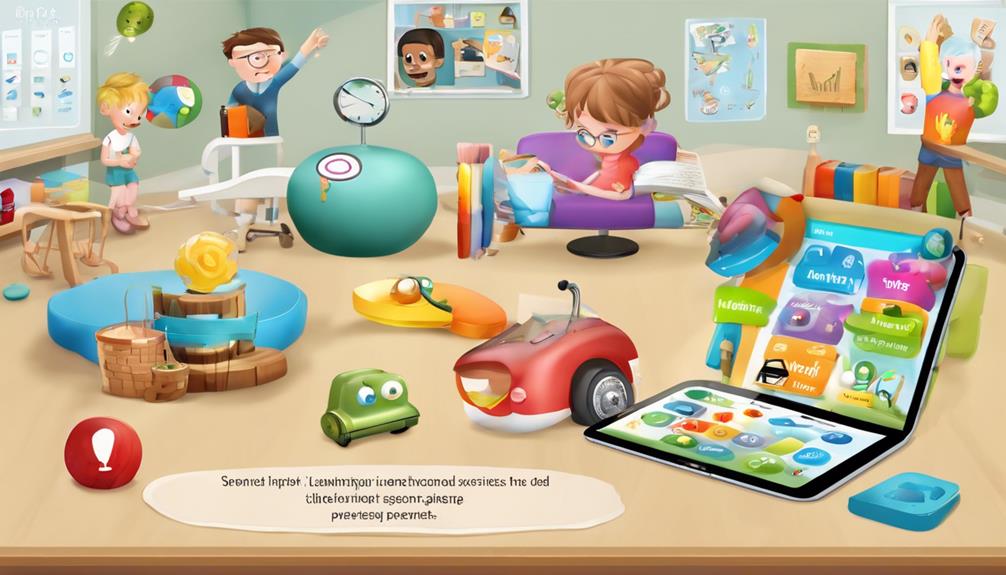
Interactive therapy tools within speech therapy apps offer engaging exercises and activities tailored to target specific speech and language goals effectively. These tools provide a dynamic platform for individuals to work on improving their communication skills in a fun and interactive way.
Here are three key features of interactive therapy tools:
- Visual Cues: Incorporating clear visual aids and cues in the exercises helps users better comprehend and execute tasks, enhancing their learning experience.
- Customizable Settings: The ability to personalize settings within these tools allows users to adapt the activities to their specific needs and preferences, making the therapy more tailored and effective.
- Engaging Exercises: From games to interactive tasks, these tools offer a variety of stimulating activities that keep users motivated and actively participating in their speech therapy sessions.
Frequently Asked Questions
Is There an App to Help With Speech?
Yes, there are apps that can assist with speech improvement. These applications offer a range of activities and exercises tailored to target specific speech goals.
Users can enhance articulation, language skills, fluency, voice modulation, and more through interactive features. Speech therapy apps provide a convenient and engaging platform for individuals to work on their communication challenges.
Customization options, progress tracking, and support for various speech therapy needs are commonly available in these apps.
Can Speech Therapy Help With Communication?
Yes, speech therapy can significantly improve communication skills. Therapists utilize evidence-based techniques to address various challenges effectively.
Tailored therapy plans focus on enhancing speech clarity, language expression, and overall communication abilities. Personalized strategies are incorporated into sessions to help individuals communicate more effectively in daily interactions.
Through targeted interventions, speech therapy empowers individuals to express themselves clearly and engage confidently in social communication.
What Is the App for Sequencing Speech Therapy?
We found the app for sequencing speech therapy! 'Sequencing Speech' by Smarty Ears is a fantastic tool. It focuses on improving sequencing skills in therapy sessions through activities targeting event sequencing.
This app is highly customizable to suit individual therapy needs. With visual aids and interactive tasks, it effectively enhances communication by strengthening sequencing abilities. It's a top choice for therapists looking to boost communication skills in their clients.
What Is the Following Directions Speech Therapy App?
We use the Following Directions Speech Therapy App to improve auditory processing and comprehension skills. It provides interactive activities for practicing various types of directions, offering different difficulty levels to suit individual needs.
Users can track their progress within the app. This tool benefits speech therapists, educators, and individuals aiming to enhance listening and comprehension abilities.
Conclusion
In conclusion, these top 10 speech therapy apps for effective communication offer a comprehensive range of tools to enhance language skills.
From articulation exercises to vocabulary building and social skills enhancement, users can benefit from interactive and engaging activities.
With progress monitoring and customizable settings, individuals can track their development while enjoying therapy sessions.
These apps provide a convenient and accessible way to improve communication abilities, making them valuable resources for those seeking to enhance their speech and language skills.
Therapies and Interventions
Speech Therapy SOAP Note Example: A Detailed Case Study
Analyze the transformative impact of detailed SOAP notes in speech therapy with a comprehensive case study, unraveling the secrets to enhanced patient progress.

As speech therapists, we know that 75% of communication disorders go undiagnosed in children. Understanding the impact of detailed SOAP notes in speech therapy sessions is crucial for patient care and treatment outcomes.
In a recent case study, we dissect a comprehensive patient journey, from initial assessment to outcome evaluation, showcasing the power of meticulous documentation in enhancing therapy effectiveness and patient progress.
Dive into this detailed case study to uncover the transformative role of SOAP notes in speech therapy practice.
Key Takeaways
- Tailored interventions and progress tracking are essential for effective speech therapy.
- Setting specific, measurable goals is crucial for client progress and treatment success.
- Collaborating with the client and adjusting interventions lead to improved outcomes.
- Continuous assessment and reflection ensure interventions align with client needs for optimal results.
Case Background
In assessing the case background of the 7-year-old child with a history of receptive and expressive language delays, it's evident that the child faces challenges in following multi-step directions and articulating thoughts effectively. These difficulties have manifested in concerns raised by the child's parents regarding academic performance and social interactions.
Previous evaluations have highlighted below-average performance in language and communication skills, prompting a referral for speech therapy from the child's school. Through the implementation of SOAP notes in therapy sessions, we aim to track the child's progress systematically, document treatment plans, and assess the effectiveness of interventions.
Initial Assessment Findings

Following the initial assessment, the child's challenges with receptive and expressive language, phonological awareness, and social communication were notably identified.
The 6-year-old displayed moderate delays in both receptive and expressive language skills, struggling with comprehension of multi-step directions and coherence in expressing thoughts. Assessment tools highlighted significant difficulties in phonological awareness and speech sound production, indicating potential issues with articulation and sound discrimination.
During play-based assessments, observations revealed challenges in social communication and pragmatic language use. Standardized language tests further emphasized the need for targeted intervention in vocabulary development and sentence structure to address the identified delays effectively.
These assessment findings provide a comprehensive understanding of the child's current communication abilities and areas requiring focused speech therapy intervention. By recognizing these challenges early on, tailored strategies can be implemented to support the child in developing essential language skills for improved communication and overall academic success.
Subjective Information
After identifying the child's challenges during the initial assessment, eliciting subjective information from the client becomes crucial in understanding their unique perspective and experiences during speech therapy sessions. This subjective information provides valuable insights that guide our therapeutic approach. Here's how we gather and utilize this information:
- Client-Reported Concerns: Listening attentively to the client's concerns allows us to address their specific needs effectively.
- Feelings: Understanding the client's emotions helps us create a supportive and empathetic environment for therapy.
- Mood: Monitoring the client's mood enables us to adjust our sessions to ensure they're comfortable and engaged.
- Therapy Goals: Documenting the client's aspirations and goals helps us tailor our interventions to promote progress and achievement.
Objective Data

Gathering objective data in a speech therapy session involves capturing measurable observations, test results, and specific client responses to assess progress and tailor interventions effectively. This data provides concrete information on various aspects such as speech intelligibility, articulation accuracy, fluency patterns, voice quality, and swallowing function. By focusing on these measurable parameters, we can track progress, identify areas for improvement, and measure the effectiveness of interventions in speech therapy. The objective data obtained during sessions offers a clear picture of the client's performance and response to therapy, which is crucial for treatment planning and goal setting. Including this data in SOAP notes ensures comprehensive and evidence-based documentation of the client's session and progress in speech therapy.
| Measurable Observations | Test Results | Client Responses |
|---|---|---|
| Speech intelligibility | Articulation accuracy | Engagement during exercises |
| Fluency patterns | Voice quality | Reaction to therapeutic techniques |
| Swallowing function | Progress in speech exercises |
Assessment Summary
As we analyze the evaluation findings, we gain valuable insights into the client's communication strengths and challenges. Developing a treatment plan that's tailored to address these specific needs is crucial for effective therapy.
Implementing progress monitoring strategies allows us to adjust interventions and track the client's improvement over time.
Evaluation Findings Analysis
During the assessment summary portion of the SOAP note, we meticulously analyze the evaluation findings to derive insights into the client's progress and determine recommendations for ongoing treatment.
- Objective Information: The assessment summary relies heavily on the objective data gathered during the evaluation process.
- Comparison: Contrasting the client's current status with the initial evaluation findings is essential in understanding the progress made.
- Progress: The assessment summary presents a detailed account of the client's advancements or any stagnation observed based on the evaluation results.
- Recommendations: Guided by the assessment summary, tailored recommendations for continued treatment and therapy interventions are outlined to further support the client's progress and development.
In the assessment summary, we aim to provide a comprehensive overview of the client's journey and offer strategic guidance for their ongoing speech therapy needs.
Treatment Plan Development
Analyzing the assessment summary findings propels us towards formulating a strategic treatment plan that addresses the client's speech and language therapy needs comprehensively.
The therapy plan development stage involves setting individualized goals based on the assessment summary, selecting appropriate intervention strategies, and establishing methods for progress tracking.
By aligning the therapy plan with the client's specific communication strengths and weaknesses, we can tailor intervention techniques to suit their unique needs effectively. This process ensures that the therapy sessions are structured to enhance communication abilities and improve the client's quality of life.
Additionally, the treatment plan serves as a roadmap for therapy sessions, enabling us to set realistic expectations and measure the effectiveness of interventions over time.
Progress Monitoring Strategies
Implementing standardized assessment tools enables us to track progress effectively in speech therapy sessions, ensuring objective monitoring of changes in speech intelligibility, fluency, voice quality, and articulation accuracy.
- Utilize standardized assessment tools for consistent progress tracking.
- Monitor speech intelligibility, fluency, voice quality, and articulation accuracy.
- Document client responses to different therapeutic interventions for ongoing assessment.
- Track improvements in communication skills through measurable goals and data points.
Treatment Plan Development

As we move into the Treatment Plan Development phase, we focus on:
- Goal Setting Strategies
- Therapy Techniques Selection
- Progress Monitoring Methods
These points are crucial in tailoring interventions to address the client's specific speech therapy needs effectively.
Goal Setting Strategies
In developing a comprehensive speech therapy treatment plan, our focus is on establishing specific, measurable, achievable, relevant, and time-bound goals tailored to address the individual's speech and communication needs through collaboration with the client and their family.
When setting goals, we prioritize based on the client's abilities, challenges, and desired outcomes. To effectively track progress, we break down larger goals into smaller, manageable steps during therapy sessions.
It's crucial to regularly reassess and adjust goals as needed to ensure the client is making meaningful progress in their speech therapy journey. By following these strategies, we can create a roadmap that guides the therapy process and leads to successful outcomes for our clients.
Therapy Techniques Selection
To effectively tailor our therapy techniques for optimal client progress and outcomes, we carefully select evidence-based practices that align with the individual's specific speech, language, communication, or swallowing challenges and goals. By considering the client's preferences, feedback, and progress, we ensure a client-centered approach that enhances therapy outcomes. Our therapy techniques selection process involves continuous assessment and adjustment to best meet the client's evolving needs. The table below provides a structured overview of how we choose and adapt therapy techniques based on the client's requirements and desired outcomes.
| Therapy Techniques Selection | Details |
|---|---|
| Evidence-Based Practices | Incorporating research-backed methods for effective interventions. |
| Client Preferences | Considering individual likes, dislikes, and comfort levels. |
| Tailoring Techniques | Adapting approaches to address specific communication challenges. |
| Outcome Optimization | Continuously evaluating progress to enhance therapy effectiveness. |
Progress Monitoring Methods
Implementing effective progress monitoring methods is essential in developing and evaluating treatment plans for clients undergoing speech therapy.
- Tracking Improvement: Monitoring clients' progress over time is crucial.
- Setting Specific Goals: Developing treatment plans involves establishing clear objectives for clients.
- Data Collection Methods: Utilizing standardized assessments, observations, and self-reports aids in monitoring progress.
- Evaluating Responses: Regularly assessing clients' reactions to interventions helps gauge the effectiveness of the treatment plan.
Intervention Strategies

Utilizing tailored intervention strategies in speech therapy involves implementing a range of techniques to address specific speech and language goals. These strategies may encompass articulation drills to target speech sound accuracy, phonological awareness activities to enhance sound awareness, and fluency techniques to improve the flow of speech. By tailoring interventions based on individual assessment findings, speech therapists can effectively address the unique needs of each client. Techniques such as modeling, providing visual cues, and encouraging repetition play crucial roles in enhancing speech production and comprehension skills.
Individualized intervention plans are crafted considering factors like the client's age, diagnosis, and communication requirements. By creating personalized plans, speech therapists can cater to the specific goals and challenges of each individual, resulting in more targeted and effective interventions. Monitoring progress throughout the intervention process is vital for assessing the effectiveness of the strategies employed and making necessary adjustments to ensure optimal outcomes in speech therapy practice.
Progress Monitoring
Tracking progress in speech therapy involves continuously monitoring changes in speech and language skills to assess the effectiveness of interventions and guide treatment planning. To ensure effective progress monitoring, we rely on specific data points that offer valuable insights into our clients' development:
- Accuracy in Completing Tasks: Monitoring how accurately clients complete speech and language tasks provides a tangible measure of their progress.
- Speech Intelligibility: Assessing speech intelligibility helps us gauge how well clients are able to communicate and be understood.
- Response to Interventions: Tracking clients' responses to different therapy interventions allows us to tailor our approach to suit their individual needs.
- Regular Assessments: Conducting regular assessments is crucial for evaluating the impact of therapy interventions and making informed adjustments to treatment plans.
Adjustments in Therapy

In therapy, adapting techniques based on client progress is essential for optimizing treatment outcomes and addressing individual needs effectively. Adjustments in therapy involve modifying treatment strategies, goals, or materials to better suit the client's evolving requirements.
Flexibility within therapy sessions allows for personalized adjustments, ensuring treatment effectiveness is maximized. Therapists can respond to changes in the client's condition promptly, enhancing therapy outcomes through tailored interventions.
Continual assessment and feedback play a crucial role in guiding therapists to make appropriate adjustments during therapy sessions, ensuring that the client's progress is continually monitored and interventions are aligned with their current needs.
Family/Caregiver Involvement

Involving family and caregivers in speech therapy plays a critical role in enhancing the child's progress and the application of acquired skills. Here are key points highlighting the importance of family involvement and caregiver support in speech therapy:
- Empowering Caregivers: Educating caregivers on speech therapy techniques and strategies empowers them to support the child's communication development effectively.
- Consistency in Practice: Collaborating with family members ensures consistency in practicing therapy goals outside of sessions, reinforcing the learning process.
- Continuous Improvement: Providing caregivers with resources and tools for speech practice at home promotes continuous improvement in the child's communication skills.
- Progress Monitoring: Regular communication with caregivers allows for monitoring progress and adjusting therapy plans as needed, ensuring the child's development is on track.
Communication With Healthcare Team

We emphasize the importance of team collaboration in achieving optimal client outcomes.
Effective communication strategies are essential in aligning goals and providing comprehensive care.
Team Collaboration Importance
Collaboration with healthcare teams plays a pivotal role in ensuring comprehensive care for clients undergoing speech therapy. When team members work together effectively, the client benefits from a holistic treatment approach that considers all aspects of their well-being.
Communication among professionals fosters a multidisciplinary approach, leading to improved treatment coordination and outcomes. Consulting with specialists brings valuable insights and recommendations that can enhance the client's care plan.
In speech therapy SOAP notes, team collaboration is reflected in the shared commitment to providing the best possible care for the client. This coordinated effort embodies the essence of a patient-centered approach and underscores the importance of working together towards a common goal.
Effective Communication Strategies
Enhancing treatment outcomes relies significantly on maintaining effective communication channels with the healthcare team. Sharing relevant information and updates with the team improves treatment outcomes by ensuring coordinated care for the client.
Collaborating on treatment plans and progress tracking enhances overall therapy effectiveness, leading to better results. Clear communication plays a vital role in addressing any challenges or adjustments needed in the treatment plan promptly.
Regular team discussions are essential to ensure that all members are aligned on goals and strategies for the client's care, promoting a cohesive approach to therapy. Effective communication within the team is key to optimizing the client's progress and achieving successful therapy outcomes.
Outcome Evaluation

Outcome evaluation in speech therapy involves assessing the progress towards treatment goals by measuring improvements in speech intelligibility, fluency, voice quality, or swallowing function through documented data points. When evaluating outcomes in speech therapy, we focus on several key aspects:
- Progress Measurement: Tracking progress through quantitative measures provides insight into the effectiveness of interventions and helps adjust treatment plans accordingly.
- Treatment Goals: Evaluating outcomes allows us to determine if clients are meeting the goals set at the beginning of therapy, guiding further intervention strategies.
- Client Feedback: Incorporating client input in the evaluation process fosters a collaborative approach to therapy and ensures that treatment aligns with individual needs and preferences.
- Objective Measures: Utilizing standardized assessments and objective measures helps in documenting changes in communication or swallowing function objectively, supporting evidence-based practice.
Case Reflection

Reflecting on a complex case study in speech therapy requires a meticulous analysis of interventions and progress to inform subsequent treatment strategies effectively. In the case study we explored, the client showed significant progress through tailored interventions. The effectiveness of these interventions was evident in the client's improved speech clarity and articulation. However, continuous reflection is crucial to ensure that the treatment plan is adjusted according to the client's progress and needs.
Case Reflection Table:
| Intervention Effectiveness | Client Progress | Treatment Adjustments | Future Recommendations |
|---|---|---|---|
| High | Steady | Increased practice time | Continue with current plan and reassess in 2 weeks |
| Moderate | Rapid | Introduce new exercises | Consider group therapy sessions for social communication skills |
| Low | Slow | Simplify tasks | Collaborate with client's school for consistent support |
This detailed analysis showcases the importance of maintaining a good SOAP note to track client progress accurately and make informed decisions regarding treatment adjustments.
Frequently Asked Questions
How Do You Write a Good SOAP Note in Speech-Language Pathology?
When writing a good SOAP note in speech-language pathology, we focus on detailed subjective information about the client's concerns, mood, and goals, along with objective observations, interventions, and responses during therapy sessions.
We analyze progress towards treatment goals in the assessment section and outline specific next steps, recommendations, and strategies in the plan section for ongoing therapy.
Consistency, accuracy, and professionalism are crucial for effective communication and treatment planning.
How Do You Write a SOAP Case Note?
When writing a SOAP case note, we start by gathering subjective and objective details, evaluating progress, and outlining next steps.
It's crucial to be clear, concise, and accurate for effective communication and progress tracking.
By painting a vivid picture with our words, we aim to serve our audience with professional, detailed, and analytical language.
This approach ensures that our documentation supports the client's treatment journey effectively and compassionately.
What Is a SOAP Note for Receptive Language?
We document a client's ability to understand spoken language in a SOAP note for receptive language in speech therapy. This note includes observations on comprehension of verbal instructions, questions, and conversations.
Subjective notes may mention concerns about understanding, following directions, or responding appropriately to language.
Objectively, we detail tasks like identifying objects, answering questions, or following multi-step directions.
The assessment and plan sections analyze progress and outline strategies for improvement in receptive language skills.
What Does SOAP Stand for Speech Therapy?
Sure thing!
SOAP in speech therapy stands for:
- Subjective
- Objective
- Assessment
- Plan
This acronym helps us structure our notes effectively to track progress and improve client care.
By following the SOAP format, we ensure clear communication among healthcare providers and optimize therapy outcomes.
Understanding each section's role is crucial for creating thorough documentation and fostering better treatment plans.
Conclusion
In conclusion, navigating the intricate world of speech therapy documentation can feel like dancing through a maze of paperwork and protocols.
However, by embracing the SOAP note format and utilizing technology to streamline the process, speech-language pathologists can waltz their way to efficient, accurate, and high-quality patient care.
So, let's grab our metaphorical dancing shoes and spin our way to success in the world of speech therapy documentation!
Therapies and Interventions
Top 10 Montclair Speech Therapy Providers
Navigate the world of Montclair's top speech therapy providers, each offering unique expertise and specialized programs to enhance communication skills.

When seeking top-notch speech therapy services in Montclair, the quest for quality can be quite the challenge. With a plethora of providers vying for attention and trust, navigating the world of speech therapy can be overwhelming.
However, fear not, as we have curated a list of Montclair's premier speech therapy practitioners that excel in aiding individuals of all ages. From specialized programs to tailored approaches, these top 10 providers are sure to offer something unique and beneficial for those in need of speech therapy services.
Key Takeaways
- Leading providers offer specialized therapy for a spectrum of communication challenges.
- Evidence-based practices enhance communication skills effectively.
- High client satisfaction and positive testimonials reflect exceptional care.
- Notable speech pathologists and centers provide expert, tailored services.
Best Montclair Speech Therapy Providers
Looking for the top Montclair Speech Therapy providers that cater to a range of age groups and specialize in various speech and language disorders?
Montclair Speech Therapy, led by the esteemed Speech-Language Pathologist Lori Caplan-Colon, offers comprehensive services for infants, toddlers, children, and adults. With over 18 years of clinical experience, Lori ensures that each individual receives personalized care tailored to their specific needs. The practice focuses on evidence-based therapies for speech and language disorders, including specialized treatment for conditions such as Autism, pediatric feeding issues, swallowing disorders, and more.
Moreover, Montclair Speech Therapy stands out for accepting comprehensive insurance coverage, making quality therapy accessible to all. Whether you or your loved one require assistance with speech development, feeding challenges, or other communication difficulties, Lori and her team are dedicated to providing top-notch care in a supportive and nurturing environment. Trust Montclair Speech Therapy to deliver exceptional services for a wide range of speech and language needs.
Top-Rated Speech Therapists in Montclair

Among the diverse range of speech therapists in Montclair, their exceptional expertise shines through in their tailored approaches to addressing various speech and language disorders. These top-rated therapists have extensive experience working with both children and adults, offering individualized care through evidence-based practices.
Their specialization in treating conditions such as autism, apraxia, and developmental delays sets them apart in providing comprehensive care plans. With a keen focus on communication challenges, these therapists create inclusive therapies that cater to the unique needs of individuals in Montclair.
Leading Speech Therapy Services in Montclair
At our clinic, we understand the importance of expert speech therapists and specialized treatment programs in Montclair.
Our team is dedicated to providing individualized therapy sessions tailored to each person's unique needs.
We prioritize evidence-based practices to ensure comprehensive and effective treatment for speech and language disorders.
Expert Speech Therapists
In our community, expert speech therapists at Montclair Speech Therapy providers lead the way in delivering exceptional speech therapy services tailored to individuals of all ages. Led by licensed Speech-Language Pathologist Lori Caplan-Colon, our team offers specialized services for infants, toddlers, children, and adults. We focus on utilizing research-based therapies to address a wide range of conditions such as Autism, Apraxia, feeding and swallowing issues, traumatic brain injury, and voice disorders. Our commitment to providing comprehensive care ensures that each individual receives personalized treatment. Additionally, we work with various insurance providers to make our services accessible to all who need them.
| Expert Speech Therapists at Montclair Speech Therapy Providers |
|---|
| Specialized Services for Infants, Toddlers, Children, and Adults |
| Research-Based Therapies for Various Conditions |
| Comprehensive and Individualized Care |
| Acceptance of Various Insurance Providers for Accessibility |
Specialized Treatment Programs
Moving forward from our discussion on the expertise of our speech therapists, Montclair Speech Therapy providers excel in offering specialized treatment programs tailored to address a spectrum of communication challenges in individuals of all ages. These programs cater to diagnoses such as autism, apraxia, and developmental delays, providing focused therapy for feeding and swallowing challenges, traumatic brain injuries, and stuttering.
Advanced options for voice disorders, aphasia, and lisping are also available, emphasizing evidence-based practices and personalized care plans to effectively target individual communication goals. Comprehensive insurance coverage is ensured, prioritizing accessibility to therapy services for all age groups.
Top 10 Speech Therapy Clinics in Montclair

Having explored the landscape of speech therapy clinics in Montclair, we've curated a list of the top 10 providers renowned for their expertise and dedication to improving communication skills. These clinics specialize in addressing communication disorders and language development through custom care plans and evidence-based therapies.
Led by licensed Speech-Language Pathologist Lori Caplan-Colon, these clinics ensure comprehensive therapy tailored to individual needs. Whether it's for infants, toddlers, children, or adults, these providers offer a range of treatments for various diagnoses, focusing on overcoming communication challenges.
Montclair's Premier Speech Therapy Providers

We understand the importance of finding expert therapists who can provide specialized treatment programs tailored to individual needs.
Montclair's premier speech therapy providers prioritize positive patient outcomes through evidence-based practices and personalized care plans.
With a focus on comprehensive therapies for all age groups, these providers strive to make a lasting impact on communication challenges.
Expert Therapists Available
Utilizing a team of skilled therapists, Montclair's premier speech therapy providers deliver specialized care for individuals of all ages with speech and language disorders. Our expert therapists, specializing in evidence-based practices, offer individualized care tailored to meet the unique needs of each client. Led by licensed Speech-Language Pathologist, Lori Caplan-Colon, with over 18 years of clinical experience, our team ensures comprehensive therapy options for infants, children, and adults.
Here's why our therapists stand out:
- Specialize in treating speech and language disorders
- Utilize research-based therapies
- Provide individualized care for all age groups
- Focus on evidence-based practices for effective communication challenges
Specialized Treatment Programs
Our specialized treatment programs cater to individuals of all ages at Montclair's premier speech therapy providers. We offer tailored therapy plans designed to address a range of communication challenges and unique needs with evidence-based practices. Whether it's cognitive rehabilitation after a traumatic brain injury, assistance with autism spectrum disorders, or support for feeding and swallowing issues, our programs are comprehensive and inclusive.
We understand the importance of addressing specific conditions like stuttering, voice disorders, and aphasia through specialized therapies. Montclair's top speech therapy providers prioritize quality care, ensuring that therapy services are accessible and covered by comprehensive insurance. When seeking speech and language therapy, individuals can trust in the expertise and effectiveness of our specialized treatment programs.
Positive Patient Outcomes
Transitioning from specialized treatment programs, Montclair's premier speech therapy providers consistently deliver positive patient outcomes through evidence-based therapies tailored to individual needs for optimal results.
- Individualized Therapy: Tailored treatment plans cater to each patient's unique requirements.
- Evidence-Based Practices: Therapies are rooted in the latest research and proven to be effective.
- Improved Communication Skills: Patients experience significant enhancements in their ability to communicate.
- Positive Testimonials: Numerous testimonials and reviews attest to the success stories of individuals benefiting from these top speech therapy providers in Montclair.
These providers prioritize the well-being and progress of each patient, ensuring a supportive and effective therapy experience.
Top Speech Pathologists in Montclair

Who are the top Speech Pathologists in Montclair that provide specialized care tailored to individual needs?
The top providers in Montclair excel in offering personalized speech therapy to address a variety of concerns such as AAC, feeding disorders, and neurological disorders.
Lori Caplan-Colon stands out with her extensive clinical experience spanning over 18 years, holding both NJ state licensure and ASHA certification.
Meghan Masiulis, equipped with a B.A. and M.S. in Speech Language Pathology, specializes in AAC interventions for individuals with limited communication abilities.
Monica R. Christian brings over a decade of expertise to the field, focusing on neurological, developmental, and acquired disorders.
These professionals not only possess in-depth knowledge but also offer specialized care tailored to the unique needs of each client, including children, adolescents, and adults.
Their commitment to individualized care, along with their training in oral motor and feeding dysfunction, sets them apart as leaders in the Montclair speech therapy community.
Montclair's Finest Speech Therapy Centers

Among the diverse range of services available for individuals with speech and language disorders in Montclair, the finest speech therapy centers stand out for their evidence-based therapies and experienced Speech-Language Pathologists. These centers cater to infants, toddlers, children, and adults, offering specialized care for a variety of conditions such as Autism, Apraxia, and stuttering.
The therapies provided are tailored to meet individual needs, ensuring that each patient receives personalized treatment. Additionally, comprehensive insurance coverage is accepted at these centers, making quality therapy services accessible to a wide range of individuals seeking help.
When you choose Montclair's top speech therapy providers, you can rest assured that you or your loved one will receive targeted therapy specific to your age group, whether you're an infant, child, teenager, adult, or part of the geriatric population. Trust in the expertise of these professionals to guide you on your journey to improved communication and quality of life.
Top Speech Therapy Specialists in Montclair

As we focus on the top speech therapy specialists in Montclair, it's essential to highlight their expertise in providing tailored therapies for individuals of all ages with speech and language disorders. Montclair Speech Therapy, led by licensed Speech-Language Pathologist Lori Caplan-Colon, offers specialized services for infants, toddlers, children, and adults. These specialists are known for their research-based therapeutic approaches that address a variety of conditions such as Autism, Apraxia, developmental delays, and more. One key advantage of choosing Montclair Speech Therapy is their acceptance of comprehensive insurance coverage, ensuring that individuals can access the services they need without financial barriers.
To provide a clearer overview of the top speech therapy specialists in Montclair, here is a table showcasing some of their distinguishing features:
| Feature | Description |
|---|---|
| Age Groups Served | Infants, Toddlers, Children, Adults |
| Therapy Approaches | Research-Based Therapeutic Approaches |
| Specializations | Autism, Apraxia, Developmental Delays, and More |
| Insurance Coverage | Comprehensive Insurance Coverage Accepted for Accessibility to Services |
Montclair's Top Speech Therapy Clinicians

In Montclair, we've a dedicated team of top speech therapy clinicians who bring expertise and compassion to their work with individuals of all ages.
Meet Our Top Clinicians:
- Lori Caplan-Colon, M.S. CCC-SLP: With over 18 years of clinical experience, Lori is ASHA certified, ensuring high-quality care.
- Meghan Masiulis, M. S. CCC-SLP: Meghan specializes in AAC for limited communication skills, catering to individuals across the lifespan.
- Monica R. Christian, M. S. CCC-SLP: Monica's 10+ years of experience focus on neurological, developmental, and acquired disorders, providing comprehensive care.
- Elisabeth Gifford, OTR/L: Elisabeth, a licensed OT in NJ and NY, brings a wealth of experience working with children and adults in various clinical settings.
Our clinicians understand the unique needs of each individual, whether it's pediatric speech therapy, addressing developmental disorders, or collaborating with occupational therapy for holistic care. With their expertise and commitment to improving communication skills, our team strives to make a positive impact on the lives of those we serve.
Leading Montclair Speech Therapy Practices

Our focus shifts to the exceptional practices in Montclair that lead the way in providing top-tier speech therapy services for a diverse range of individuals in need. These leading practices, staffed by licensed Speech-Language Pathologists, cater to infants, toddlers, children, and adults with various speech and language disorders.
What sets these practices apart is their commitment to utilizing research-based and evidence-driven therapies. Each individual who walks through their doors receives personalized care plans tailored to their specific needs, ensuring the most effective treatment outcomes. By offering custom care plans, these practices demonstrate a dedication to providing comprehensive and individualized support to each client.
With a focus on evidence-based practices and a team of experienced professionals, these leading Montclair speech therapy practices stand out as beacons of excellence in the field. For those seeking top-quality speech therapy services, these practices offer the expertise and support needed to address speech and language challenges effectively.
Frequently Asked Questions
How Do You Know if a Speech Therapist Is Good?
When assessing a speech therapist's quality, we look for the following factors:
- Experience
- Evidence-based practices
- Customized care plans
- Positive client feedback
- Versatility in working with various age groups
- Commitment to ongoing professional growth
These factors help determine a therapist's effectiveness and patient satisfaction. By prioritizing communication goals, using effective techniques, and staying current in the field, therapists can offer top-notch care tailored to individual needs.
How Do I Choose a Good Speech Therapist?
When choosing a speech therapist, we prioritize:
- Experience
- Credentials
- Communication style
- Therapy approach
- Availability
It's crucial to find someone who meets your needs and values evidence-based practices. Listening to success stories and confirming their professional affiliations can guide your decision.
What SLPs Make the Most Money?
When it comes to Speech-Language Pathologists (SLPs) earning top salaries, those with specialized skills like dysphagia or voice disorders tend to command higher pay.
Working in settings like hospitals or skilled nursing facilities can also boost earning potential.
Geographic location, advanced certifications like CCC-SLP, and years of experience play significant roles.
SLPs in metropolitan areas or with advanced credentials and expertise typically make the most money in the field.
Is There a Difference Between Speech Therapist and Speech Pathologist?
Yes, there's a difference between a speech therapist and a speech pathologist. While both professions involve diagnosing and treating communication disorders, 'speech therapist' is more commonly used in clinical settings, whereas 'speech-language pathologist' is the preferred title in academic and professional circles.
Both require a master's degree, state licensure, and certification from ASHA. Despite the differing titles, they reflect the same specialized expertise in speech-language pathology.
Conclusion
In conclusion, the top 10 Montclair speech therapy providers offer exceptional services for individuals of all ages. Whether you're looking for pediatric therapy or adult services, these clinics have got you covered.
Remember, when it comes to speech therapy, these providers are the cream of the crop. So don't hesitate to reach out and take the first step towards improving your communication skills.
The ball is in your court – seize the day and make a positive change today!
Therapies and Interventions
SOAP Note Example for Speech Therapy Session
Wander through the world of speech therapy documentation with SOAP Note Examples, uncovering the key to optimizing client outcomes and tracking progress.

In the world of speech therapy, 'practice makes perfect' rings true, but how do we capture these sessions effectively? Imagine a scenario where every utterance, every vocal exercise, and every breakthrough could be meticulously recorded and analyzed to optimize client outcomes.
SOAP Note Examples for Speech Therapy Sessions offer a window into this very process, shedding light on the structured documentation that shapes therapeutic journeys. Let's explore how these notes serve as invaluable tools for speech-language pathologists to tailor interventions, track progress, and enhance client-centered care.
Key Takeaways
- Fluency-enhancing strategies effectively reduced stuttering frequency and increased confidence in a school-age child.
- Articulation therapy improved sound accuracy and self-correction in a preschooler.
- Tailored interventions in adult voice sessions focus on vocal quality, pitch, and projection.
- Swallowing therapy in home health setting aims to enhance function and reduce aspiration risk with family support.
SOAP Note Structure Overview
In our practice, we adhere to a structured format known as the SOAP note, which serves as a comprehensive framework for documenting key aspects of speech therapy sessions. The SOAP note consists of four essential sections: Subjective, Objective, Assessment, and Plan. The Subjective section captures the client's concerns, feelings, and subjective observations from the session. It allows us to understand the client's perspective and emotional state, providing valuable insights into their overall well-being.
Moving on to the Objective section, this is where we detail observable and measurable information, interventions used during the session, and the client's responses. By documenting these tangible aspects, we can track progress accurately and tailor our approach to the client's specific needs effectively.
The Assessment section plays a crucial role in analyzing progress towards treatment goals and evaluating the effectiveness of interventions employed. It enables us to make informed decisions about the client's ongoing care.
School-Age Child Stuttering Session

Transitioning from our structured SOAP note approach to a specific focus on a recent session, we address the School-Age Child Stuttering Session, where we observed increased stuttering frequency during conversational tasks.
During the session, we implemented fluency-enhancing strategies such as easy onset and light articulatory contacts. Additionally, we utilized pacing techniques and gentle reminders to reduce disfluencies effectively.
As a result of these interventions, we noted a significant improvement in stuttering severity and an increase in the child's confidence when speaking. We recommended continued practice of these techniques at home to reinforce progress and scheduled a follow-up session to monitor further improvements.
Preschool Articulation Session
During our recent preschool articulation session, we focused on addressing the child's age-appropriate speech sound errors and implementing tailored therapy goals to enhance their speech development. The child, a 4-year-old, presented with difficulties producing the /k/ and /g/ sounds, primarily substituting them with /t/ and /d/. We utilized modeling and repetition techniques to target these sounds, observing improved accuracy throughout the session. The child responded well to cueing, showing progress in self-correction. Our therapy goals included increasing the level of accuracy in producing target sounds and improving overall articulation skills.
| Speech Sound | Error Pattern | Therapy Techniques |
|---|---|---|
| /k/ | Substituted with /t/ | Modeling |
| /g/ | Substituted with /d/ | Repetition |
Adult Voice Session

For our current adult voice session, we'll focus on assessing vocal quality, pitch, and resonance to tailor interventions that promote vocal health and enhance the client's voice production capabilities.
- Vocal Quality Assessment: We'll evaluate the clarity, strength, and consistency of the client's voice to identify areas for improvement.
- Pitch Evaluation: Assessing the client's pitch range and control to work on achieving a balanced and appropriate pitch for communication needs.
- Resonance Analysis: Examining the client's resonance patterns to enhance vocal projection and clarity.
- Intervention Strategies: Implementing vocal exercises, relaxation techniques, and providing education on vocal hygiene to support voice therapy progress.
Throughout the session, we'll monitor the client's response to these voice therapy techniques, track progress towards set goals, and collaborate on establishing SMART goals for continuous improvement.
Referrals to ENT specialists or additional evaluations will be considered if necessary for comprehensive care. Our aim is to support the client in achieving optimal voice function through ongoing sessions and tailored interventions.
Adult Swallowing Session (Home Health)
In our current adult swallowing session in the home health setting, we are focusing on assessing and addressing the patient's swallowing function to optimize their ability to safely consume food and liquids. During the session, we carefully documented the patient's progress with dysphagia exercises and observed their ability to swallow thin liquids, noting any signs of aspiration. We implemented various strategies to improve swallowing function and reduce aspiration risk, tailoring our treatment plan to suit the patient's needs. Collaborating with the patient's family members, we provided guidance and reinforcement techniques to ensure consistency in practicing swallowing exercises at home. It is essential to continue monitoring the patient's progress closely and make any necessary adjustments to the treatment plan during follow-up visits. By working together and providing dedicated care, we aim to enhance the patient's swallowing function and overall well-being.
| Category | Observations | Actions Taken |
|---|---|---|
| Swallowing Function | Improved with exercises | Implemented specific techniques |
| Aspiration Risk | No signs observed | Emphasized safe swallowing strategies |
| Family Support | Engaged in reinforcement techniques | Encouraged continued practice at home |
Frequently Asked Questions
How Do You Write a Speech Therapy Session Note?
When we write a speech therapy session note, we focus on documenting the subjective concerns of the client, our observations, and interventions in the objective section.
Assessing progress towards treatment goals and outlining next steps in the plan section.
We ensure accuracy and clarity in our notes to track progress effectively and provide quality care.
This approach helps us tailor therapy to meet the client's needs and achieve desired outcomes.
What Are Examples of SOAP Notes?
Examples of SOAP notes can vary and cover a range of disciplines. They serve as detailed records of patient interactions and interventions in healthcare. These notes are essential for tracking progress, justifying treatment, and ensuring effective communication among healthcare providers.
In speech therapy, SOAP notes may capture sessions for stuttering, articulation, voice, swallowing, and cognitive communication. They highlight specific interventions, patient responses, and cues provided during the session, aiding in ongoing care planning.
What Does SOAP Stand for in Speech Therapy?
In speech therapy, SOAP stands for Subjective, Objective, Assessment, and Plan. Each component plays a vital role in documenting a session thoroughly.
Subjective captures client concerns, while Objective notes measurable details. Assessment evaluates progress, and Plan outlines next steps.
Together, these sections provide a holistic view of the client's therapy journey.
What Are SOAP Notes for Therapy Sessions?
SOAP notes for therapy sessions are structured documentation tools that help organize information effectively. They consist of four main sections: Subjective, Objective, Assessment, and Plan.
Speech-language pathologists use them to track clients' progress, interventions, responses, and future treatment plans. These notes demonstrate skilled intervention, track progress, ensure medical necessity, and meet insurance requirements.
They play a crucial role in maintaining accurate records for audits, continuity of care, and effective communication among healthcare providers.
Conclusion
Just as a sculptor shapes clay into a masterpiece, speech-language pathologists mold the communication skills of their clients through therapy sessions.
By utilizing SOAP Note examples for various speech therapy sessions, we're able to carefully craft a roadmap for progress and success.
Each session is a brushstroke, painting a brighter future for those we serve.
Together, we work towards unlocking the potential and voice of every individual, creating beautiful works of communication art.
-
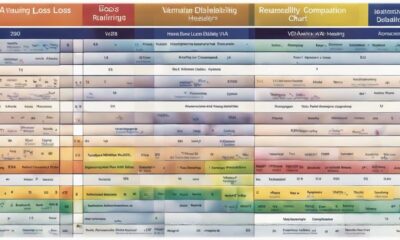
 Navigating the VA System4 weeks ago
Navigating the VA System4 weeks agoVA Hearing Loss Rating Chart: Understanding Disability Compensation
-

 Therapies and Interventions3 months ago
Therapies and Interventions3 months ago10 Auditory Processing Goals for Effective Speech Therapy
-

 Living with Hearing Loss2 months ago
Living with Hearing Loss2 months ago10 Deaf-Friendly Dating Sites to Find Your Perfect Match
-

 Sign Language3 months ago
Sign Language3 months agoSign Language Emoji Translator: How to Communicate With Gestures
-

 Tinnitus1 month ago
Tinnitus1 month agoVA's Rating System for Tinnitus and Hearing Loss Explained
-

 Navigating the VA System3 weeks ago
Navigating the VA System3 weeks agoUnderstanding Bilateral Hearing Loss VA Rating Criteria
-

 Vetted1 month ago
Vetted1 month ago15 Best Oticon Hearing Aids to Improve Your Hearing in 2024
-

 Living with Hearing Loss2 months ago
Living with Hearing Loss2 months agoAn Introduction to Deaf Culture: Understanding the Basics
